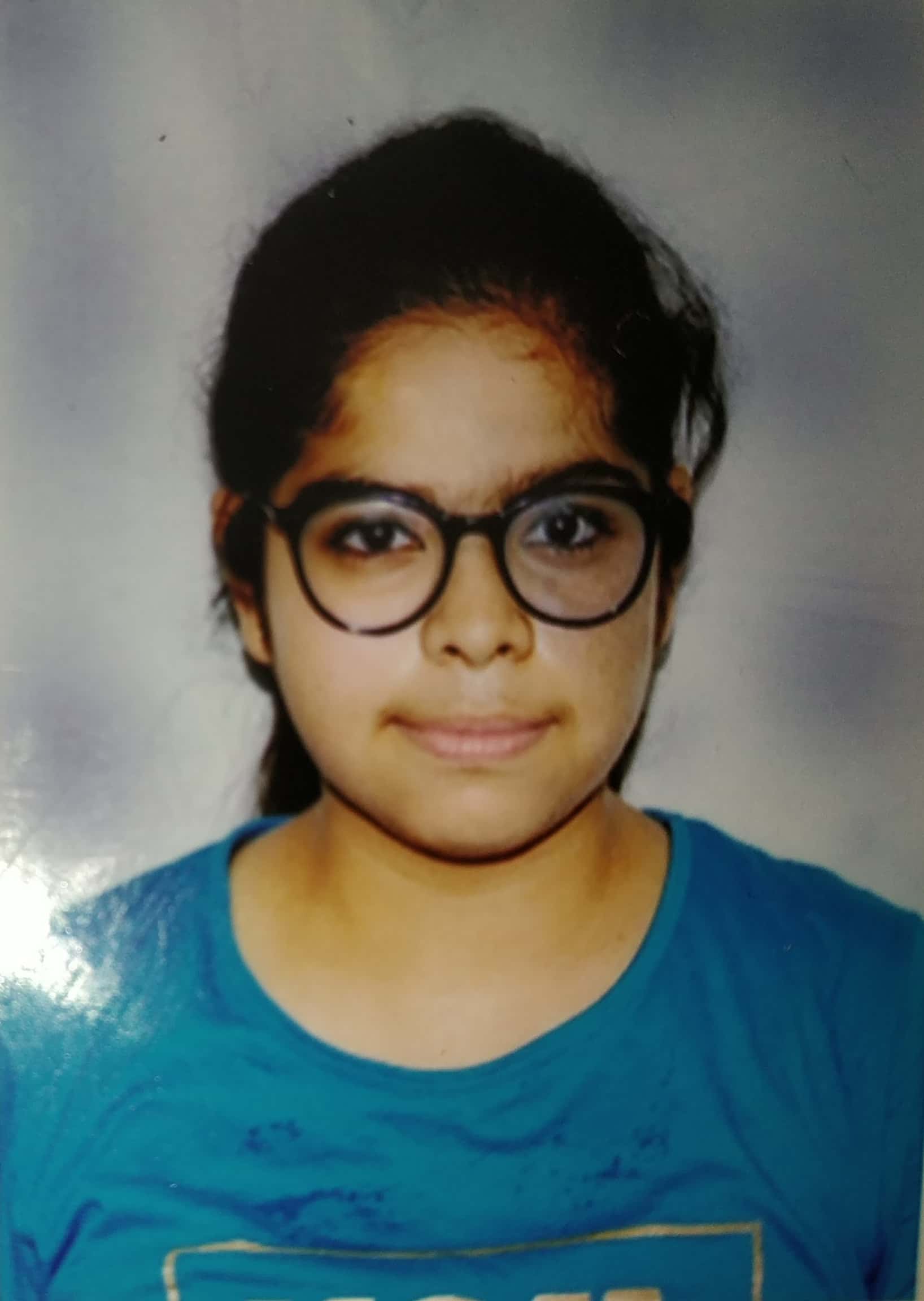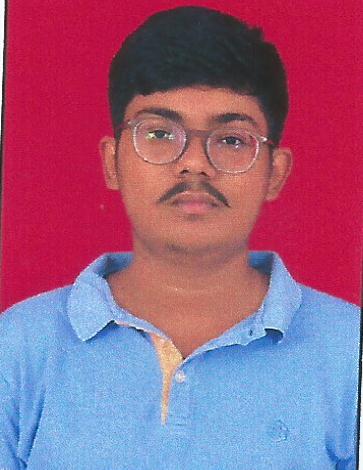Our results are what define us
Results over the years are a testimony to the effectiveness of our Winning Methodology & set us apart from other Coaching Institutes
CTET Overview
PRIMARY TEACHER (CLASS I-V)
- Senior Secondary (or its equivalent) with at least 50% marks and passed or appearing in final year of 2- year Diploma in Elementary Education (by whatever name known) OR
- Senior Secondary (or its equivalent) with at least 45% marks and passed or appearing in final year of 2- year Diploma in Elementary Education (by whatever name known), in accordance with the NCTE (Recognition Norms and Procedure), Regulations, 2002 OR
- Senior Secondary (or its equivalent) with at least 50% marks and passed or appearing in final year of 4- year Bachelor of Elementary Education (B.El.Ed) OR
- Senior Secondary (or its equivalent) with at least 50% marks and passed or appearing in final year of 2- year Diploma in Education (Special Education)* OR
- Graduation and passed or appearing in final year of two year Diploma in Elementary Education (by whatever name known).
ELEMENTARY TEACHER (CLASS VI-VIII)
- Graduation and passed or appearing in final year of 2-year Diploma in Elementary Education (by whatever name known).
- Graduation with at least 50% marks and passed or appearing in 1-year Bachelor in Education (B.Ed).
- Graduation with at least 45% marks and passed or appearing in 1-year Bachelor in Education (B.Ed), in accordance with the NCTE (Recognition Norms and Procedure) Regulations issued from time to time in this regard. OR
- Senior Secondary (or its equivalent) with at least 50% marks and passed or appearing in final year of 4- year Bachelor in Elementary Education (B.El.Ed). OR
- Senior Secondary (or its equivalent) with at least 50% marks and passed or appearing in final year of 4- year B.A/B.Sc.Ed or B.A.Ed/B.Sc.Ed. OR
- Graduation with at least 50% marks and passed or appearing in 1-year B.Ed. (Special Education).
SPECIAL NOTE-
- Relaxation up to 5% in the qualifying marks in the minimum Educational Qualification for eligibility shall be allowed to the candidates belonging to reserved categories, such as SC/ST/OBC/Differently abled.
- A Diploma/Degree course in teacher education recognized by the National Council for Teacher Education (NCTE) only shall be considered.
- In case of Diploma in Education (Special Education) and B.ED (Special Education), a course recognized by the Rehabilitation Council of India (RCI) only shall be considered. A person with D.Ed (Special Education) or qualification shall undergo, after appointment , an NCTE recognized 6-month Special Programme in Elementary Education.
- In respect of teachers for Physical Education, the minimum qualification norms for Physical Education teachers referred to in NCTE Regulation, dated 3rd November, 2001 (as amended from time to time) shall be applicable.
- For teachers of Art Education, Craft Education, Home Science, Work Education, etc. the existing eligibility norms prescribed by the State Governments and other school managements shall be applicable till such time the NCTE lays down the minimum qualifications in respect of such teachers.
- Candidates can apply online for CTET - 2019 through CTET website ctet.nic.in
- Make sure that you read the eligibility conditions carefully before you start filling the form.
- The candidate is required to write complete mailing address with Postal Pin Code at the time of applying.
- Before submission of application form, decide the mode of payment of fee.
- Make sure that preserve the Confirmation Page along with the original copy of E-Challan (In case fee is paid through E-Challan) of Syndicate Bank or Canara Bank for future reference.
- If a candidate submits more than one application online, his/her candidature shall be liable to be cancelled and the candidate may also be debarred for future examination(s). No communication will be sent in this regard.
- Log on to the official website of CTET: ctet.nic.in.
- On the website, chose the link “Apply Online” and open the same.
- Complete the online Application Form and note down Registration No./Application No.
- Complete the form by filling in the details of Candidate’s Name, and Date of Birth and Gender, Identification type (select any Identity as applicable).
- Complete the online Application Form by choosing the password. After submission, a Registration Number/Application Number gets generated. Note down the Registration No./Application No. For subsequent login, system generated Registration No. /Application No. and chosen Password will be used.
- Candidate should log out at the end of their session so that the contents of the application cannot be tampered by unauthorized persons.
- Upload Scanned Images of latest Photograph and Signature.
- The scanned photograph and image should be in JPEG format.
- Size of scanned photograph should be between 10 to 100 KB. Image Dimension of photograph should be 3.5 cm (width) x 4.5 cm (height).
- Size of scanned signature should be between 3 to 30 KB. Image Dimension of signature should be 3.5 cm (length) x 1.5 cm (height).
- Pay examination Fee by e-challan or debit card / credit card.
|
S. Nos |
CATEGORY |
ONLY Paper I or II |
Both Paper I & II |
|
1. |
General/OBC |
Rs.700 |
Rs. 1200 |
|
2. |
SC/ST/ Diff. abled person |
Rs.350 |
Rs.600 |
- Remittance through E-Challan can be done by depositing the prescribed fee in CTET Exam Fee Account with Syndicate Bank or Canara Bank.
- Online payment can be done by Debit Card / Credit Card.
- Print Confirmation page for record and future reference.
CHECKLIST
Candidates are required to take printout of Confirmation Page for record and keep it for their reference. The Confirmation Page is not required to be sent to CTET Unit.
- Mode of examination: Offline
- Main question paper shall be Bilingual (Hindi/English).
- Types of Questions: Multiple Choice Questions(MCQs)
- All questions in CTET will be Multiple Choice Questions (MCQs), with four alternatives out of which one answer will be correct. Each will be carrying one mark and there will be no negative marking.
- There will be two papers of CTET-Paper I & Paper II.
-
- Primary stage-Paper I will be for a person who intends to be a teacher for classes I to V.
- Elementary stage-Paper II will be for a person who intends to be a teacher for classes VI to VIII.
- A person who intends to be a teacher for both levels (classes I to V and classes VI to VIII) will have to appear in both the papers (Paper I and Paper II).
PAPER-I (Classes I to V) Primary Stage
Time duration: 2 hours 30 minutes or 150 minutes
|
S. Nos |
Subject |
Number of questions |
Marks |
|
1. |
Child Development and Pedagogy |
30 |
30 |
|
2. |
Language I (compulsory) |
30 |
30 |
|
3. |
Language II (compulsory) |
30 |
30 |
|
4. |
Mathematics |
30 |
30 |
|
5. |
Environmental Studies |
30 |
30 |
|
|
TOTAL |
150 |
150 |
PAPER-II (Classes VI to VII) Elementary Stage
Time duration: 2 hours 30 minutes or 150 minutes
|
S. Nos |
Subject |
Number of questions |
Marks |
|
1. |
Child Development and Pedagogy |
30 |
30 |
|
2. |
Language I (compulsory) |
30 |
30 |
|
3. |
Language II (compulsory) |
30 |
30 |
|
4. |
Mathematics and Science (for Mathematics and Science teacher) |
60 |
60 |
|
5. |
Social Studies/Social Science (for Social Studies/Social Science teacher) |
60 |
60 |
|
|
TOTAL |
150 |
150 |
** Language II will be a language other than Language I. A candidate may choose any one language as Language I and other as Language II from the available language options and will be required to specify the same in the Confirmation Page. Language options would be English, Hindi and Sanskrit only. Candidate may choose only two languages from English, Hindi and Sanskrit only.
CTET 2019
STRUCTURE AND CONTENT OF SYLLABUS
Paper I (for classes I to V) Primary Stage:
- Child Development and Pedagogy 30 Questions
- a) Child Development (Primary School Child) 15 Questions
- Concept of development and its relationship with learning
- Principles of the development of children
- Influence of Heredity & Environment
- Socialization processes: Social world & children (Teacher, Parents, Peers)
- Piaget, Kohlberg and Vygotsky: constructs and critical perspectives
- Concepts of child-centered and progressive education
- Critical perspective of the construct of Intelligence
- Multi Dimensional Intelligence
- Language & Thought
- Gender as a social construct; gender roles, gender-bias and educational practice
- Individual differences among learners, understanding differences based on diversity of language, caste, gender, community, religion etc.
- Distinction between Assessment for learning and assessment of learning; School-Based Assessment, Continuous & Comprehensive Evaluation: perspective and practice
- Formulating appropriate questions for assessing readiness levels of learners; for enhancing learning and critical thinking in the classroom and for assessing learner achievement.
- b) Concept of Inclusive education and understanding children with special needs 5 Questions
- Addressing learners from diverse backgrounds including disadvantaged and deprived
- Addressing the needs of children with learning difficulties, ‘impairment’ etc.
- Addressing the Talented, Creative, Specially abled Learners
- c) Learning and Pedagogy 10 Questions
- How children think and learn; how and why children ‘fail’ to achieve success in school performance.
- Basic processes of teaching and learning; children’s strategies of learning; learning as a social activity; social context of learning.
- Child as a problem solver and a ‘scientific investigator’
- Alternative conceptions of learning in children, understanding children’s ‘errors’ as significant steps in the learning process.
- Cognition & Emotions
- Motivation and learning
- Factors contributing to learning – personal & environmental
- Language I. 30 Questions
- a) Language Comprehension 15 Questions
Reading unseen passages – two passages one prose or drama and one poem with questions on comprehension, inference, grammar and verbal ability (Prose passage may be literary, scientific, narrative or discursive)
- b) Pedagogy of Language Development 15 Questions
- Learning and acquisition
- Principles of language Teaching
- Role of listening and speaking; function of language and how children use it as a tool
- Critical perspective on the role of grammar in learning a language for communicating ideas verbally and in written form
- Challenges of teaching language in a diverse classroom; language difficulties, errors and disorders
- Language Skills
- Evaluating language comprehension and proficiency: speaking, listening, reading and writing
- Teaching- learning materials: Textbook, multi-media materials, multilingual resource of the classroom
- Remedial Teaching
III. Language – II 30 Questions
- a) Comprehension 15 Questions
Two unseen prose passages (discursive or literary or narrative or scientific) with question on comprehension, grammar and verbal ability
- b) Pedagogy of Language Development 15 Questions
Learning and acquisition
- Principles of language Teaching
- Role of listening and speaking; function of language and how children use it as a tool
- Critical perspective on the role of grammar in learning a language for communicating ideas verbally and in written form;
- Challenges of teaching language in a diverse classroom; language difficulties, errors and disorders
- Language Skills
- Evaluating language comprehension and proficiency: speaking, listening, reading and writing
- Teaching – learning materials: Textbook, multi-media materials, multilingual resource of the classroom
- Remedial Teaching
- Mathematics 30 Questions
- a) Content 15 Questions
- Geometry
- Shapes & Spatial Understanding
- Solids around Us
- Numbers
- Addition and Subtraction
- Multiplication
- Division
- Measurement
- Weight
- Time
- Volume
- Data Handling
- Patterns
- Money
- b) Pedagogical issues 15 Questions
- Nature of Mathematics/Logical thinking; understanding children’s thinking and reasoning patterns and strategies of making meaning and learning
- Place of Mathematics in Curriculum
- Language of Mathematics
- Community Mathematics
- Evaluation through formal and informal methods
- Problems of Teaching
- Error analysis and related aspects of learning and teaching
- Diagnostic and Remedial Teaching
- Environmental Studies 30 Questions
- a) Content 15 Questions
- Family and Friends:
1.1 Relationships
1.2Work and Play
1.3 Animals
1.4Plants
- Food
III. Shelter
- Water
- Travel
- Things We Make and Do
- b) Pedagogical Issues 15 Questions
- Concept and scope of EVS
- Significance of EVS, integrated EVS
- Environmental Studies & Environmental Education
- Learning Principles
- Scope & relation to Science & Social Science
- Approaches of presenting concepts
- Activities
- Experimentation/Practical Work
- Discussion
- CCE
- Teaching material/Aids Problems
CTET 19
STRUCTURE AND CONTENT OF SYLLABUS
Paper II (for classes VI to VIII) Elementary Stage:
- Child Development and Pedagogy 30 Questions
- a) Child Development (Elementary School Child) 15 Questions
- Concept of development and its relationship with learning
- Principles of the development of children
- Influence of Heredity & Environment
- Socialization processes: Social world & children (Teacher, Parents, Peers)
- Piaget, Kohlberg and Vygotsky: constructs and critical perspectives
- Concepts of child-centered and progressive education
- Critical perspective of the construct of Intelligence
- Multi Dimensional Intelligence
- Language & Thought
- Gender as a social construct; gender roles, gender-bias and educational practice
- Individual differences among learners, understanding differences based on diversity of language, caste, gender, community, religion etc.
- Distinction between Assessment for learning and assessment of learning; School-Based Assessment, Continuous & Comprehensive
- Evaluation: perspective and practice
- Formulating appropriate questions for assessing readiness levels of learners; for enhancing learning and critical thinking in the classroom and for assessing learner achievement.
- b) Concept of Inclusive education and understanding children with special needs 5 Questions
- Addressing learners from diverse backgrounds including disadvantaged and deprived
- Addressing the needs of children with learning difficulties, ‘impairment’ etc.
- Addressing the Talented, Creative, Specially abled Learners
- c) Learning and Pedagogy 10 Questions
- How children think and learn; how and why children ‘fail’ to achieve success in school performance.
- Basic processes of teaching and learning; children’s strategies of learning; learning as a social activity; social context of learning.
- Child as a problem solver and a ‘scientific investigator’
- Alternative conceptions of learning in children, understanding children’s ‘errors’ as significant steps in the learning process.
- Cognition & Emotions
- Motivation and learning
- Factors contributing to learning – personal & environmental
- Language I. 30 Questions
- a) Language Comprehension 15 Questions
Reading unseen passages – two passages one prose or drama and one poem with questions on comprehension, inference, grammar and verbal ability (Prose passage may be literary, scientific, narrative or discursive)
- b) Pedagogy of Language Development 15 Questions
- Learning and acquisition
- Principles of language Teaching
- Role of listening and speaking; function of language and how children use it as a tool
- Critical perspective on the role of grammar in learning a language for communicating ideas verbally and in written form;
- Challenges of teaching language in a diverse classroom; language difficulties, errors and disorders
- Language Skills
- Evaluating language comprehension and proficiency: speaking, listening, reading and writing
- Teaching- learning materials: Textbook, multi-media materials, multilingual resource of the classroom
- Remedial Teaching
III. Language – II 30 Questions
- a) Comprehension 15 Questions
Two unseen prose passages (discursive or literary or narrative or scientific) with question on comprehension, grammar and verbal ability
- b) Pedagogy of Language Development 15 Questions
- Learning and acquisition
- Principles of language Teaching
- Role of listening and speaking; function of language and how children use it as a tool
- Critical perspective on the role of grammar in learning a language for communicating ideas verbally and in written form;
- Challenges of teaching language in a diverse classroom; language difficulties, errors and disorders
- Language Skills
- Evaluating language comprehension and proficiency: speaking, listening, reading and writing
- Teaching – learning materials: Textbook, multi-media materials, multilingual resource of the classroom
- Remedial Teaching
- (A) Mathematics and Science 60 Questions
(i) Mathematics 30 Questions
- a) Content 20 Questions
- Number System
- Knowing our Numbers
- Playing with Numbers
- Whole Numbers
- Negative Numbers and Integers? Fractions
- Algebra
- Introduction to Algebra
- Ratio and Proportion
- Geometry
- Basic geometrical ideas (2-D)
- Understanding Elementary Shapes (2-D and 3-D)
- Symmetry: (reflection)
- Construction (using Straight edge Scale, protractor, compasses)
- Mensuration
- Data handling
- b) Pedagogical issues 10 Questions
- Nature of Mathematics/Logical thinking
- Place of Mathematics in Curriculum
- Language of Mathematics
- Community Mathematics
- Evaluation
- Remedial Teaching
- Problem of Teaching
(ii) Science 30 Questions
- a) Content 20 Questions
- Food
- Sources of food
- Components of food
- Cleaning food
- Materials
Materials of daily use
III. The World of the Living
- Moving Things People and Ideas
- How things work
- Electric current and circuits
- Magnets
- Natural Phenomena
VII. Natural Resources
- b) Pedagogical issues 10 Questions
- Nature & Structure of Sciences
- Natural Science/Aims & objectives
- Understanding & Appreciating Science
- Approaches/Integrated Approach
- Observation/Experiment/Discovery (Method of Science)
- Innovation
- Text Material/Aids
- Evaluation – cognitive/psychomotor/affective
- Problems
- Remedial Teaching
- Social Studies/Social Sciences 60 Questions
- a) Content 40 Questions
- History
- When, Where and How
- The Earliest Societies
- The First Farmers and Herders
- The First Cities
- Early States
- New Ideas
- The First Empire
- Contacts with Distant lands
- Political Developments
- Culture and Science
- New Kings and Kingdoms
- Sultans of Delhi
- Architecture
- Creation of an Empire
- Social Change
- Regional Cultures
- The Establishment of Company Power
- Rural Life and Society
- Colonialism and Tribal Societies
- The Revolt of 1857-58
- Women and reform
- Challenging the Caste System
- The Nationalist Movement
- India After Independence
- Geography
- Geography as a social study and as a science
- Planet: Earth in the solar system
- Globe Environment in its totality: natural and human environment
- Air
- Water
- Human Environment: settlement, transport and communication
- Resources: Types-Natural and Human
- Agriculture
Social and Political Life
- Diversity
- Government
- Local Government
- Making a Living
- Democracy
- State Government
- Understanding Media
- Unpacking Gender
- The Constitution
- Parliamentary Government
- The Judiciary
- Social Justice and the Marginalised
- b) Pedagogical issues 20 Questions
- Concept & Nature of Social Science/Social Studies
- Class Room Processes, activities and discourse
- Developing Critical thinking
- Enquiry/Empirical Evidence
- Problems of teaching Social Science/Social Studies
- Sources – Primary & Secondary
- Projects Work
- Evaluation
Note: For Detailed syllabus of classes I-VIII, please refer to NCERT syllabus and textbooks
| CTET Comprises Of Two Level | CTET Level I (For Becoming Teacher For Classes I-V: Primary Stage) |
| CTET Level II (For Becoming Teacher For Classes VI-VIII: Elementary Stage) | |
| CTET Exam Conducting Body | Central Board Of Secondary Education (CBSE) |
| CTET Frequency | Twice A Year (July & December) |
| CTET July 2020 Exam Date | July 05,2020 |
| Validity Of CTET Certificate | 7 Years |
| CTET Consists Of No. Of Question | 150 Questions |
| CTET Exam Duration | 02 Hours 30 Minutes |
| CTET Exam Mode | Online (Computer Based Test) |
| CTET Type | Objective Type |
| CTET Exam Purpose | To fulfill one of the eligibility required to apply for various Teaching Government & Private Jobs like – |
| · Central Government Schools like KVS, NVS, Central Tibetan Schools, etc. | |
| · Schools administered by UT’s of Chandigarh, Daman & Diu, Dadra & Nagar Haveli, Lakshadweep, Andaman & Nicobar Islands and NCT of Delhi. | |
| · Schools owned and managed by the State Government or local bodies as also unaided private schools may exercise the option of considering CTET. | |
| Minimum Qualifying Marks Of CTET | 60% i.e. 90+ Marks |
| CTET Official Website | https://ctet.nic.in/webinfo/Public/Home.aspx |
| CTET Level I Syllabus | Child Development And Pedagogy |
| Mathematics | |
| Environmental Studies | |
| Language 1 And Language 2 | |
| CTET Level II Syllabus | Child Development And Pedagogy |
| Mathematics And Science | |
| Social Studies | |
| Language 1 And Language 2 |
Result
Success Mantra Advantage
The more courses you buy and the longer the subscription period, the more you save!

Experienced Knowledgeable and Energetic Faculty

Best Study Material Developed with Lots of Research

Proven Results in Various Test Prepration Examinations

Online and Mobile Support for Interactive Learning
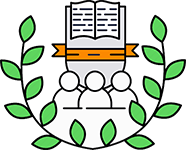
Small Batch Size for Personalized Attention

Affordable Fees (We are against Exorbitant Fees)















.jpg)
.jpg)
.jpg)
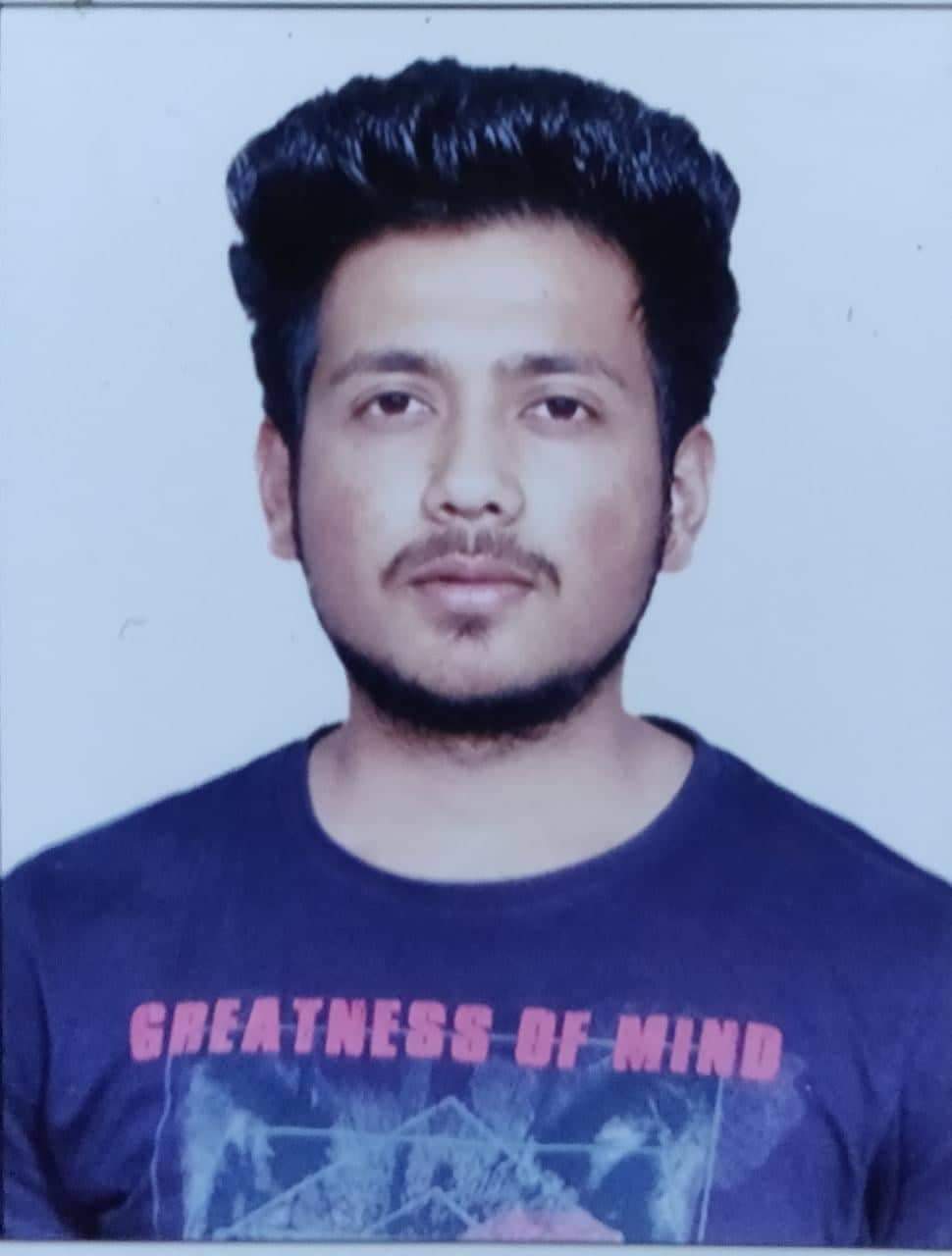
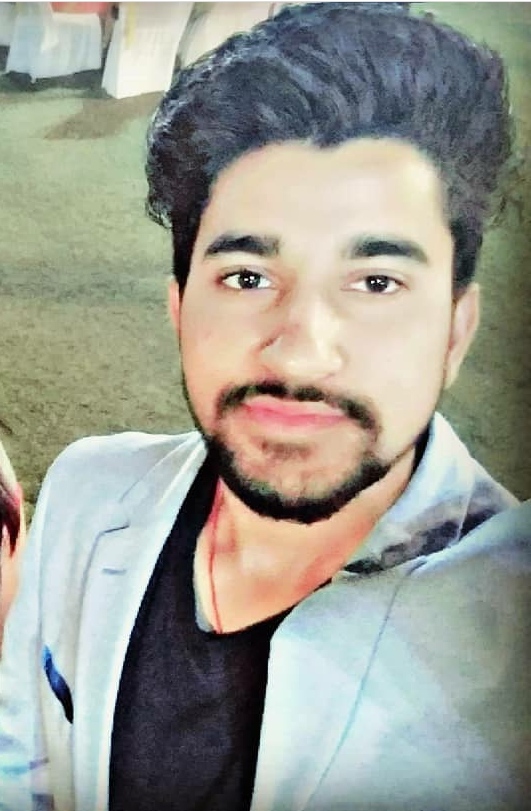
.jpg)



